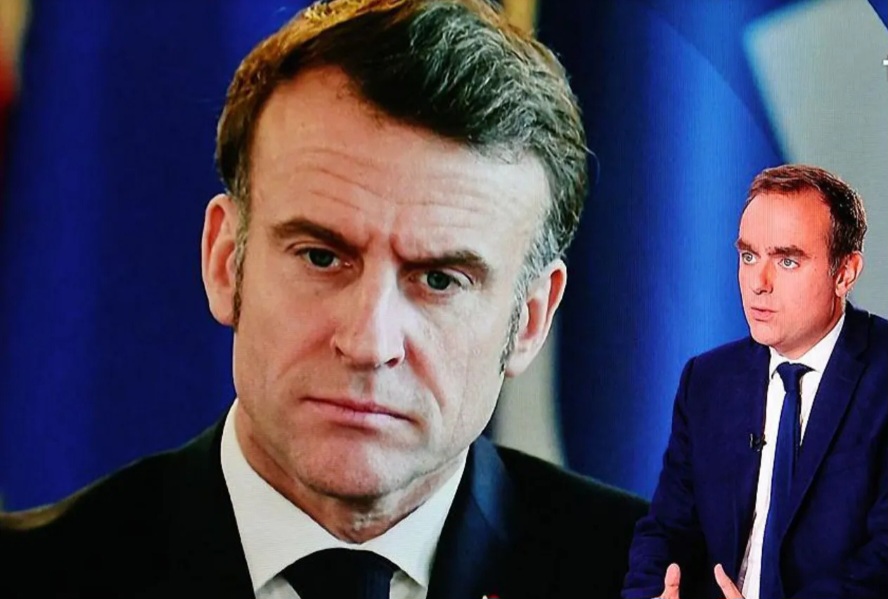
Esther Imonmion
President Emmanuel Macron has reappointed Sébastien Lecornu as French prime minister, only four days after his resignation plunged France into political chaos.
The announcement came late on Friday, October 10, following Macron’s meeting with major political parties at the Élysée Palace — excluding far-right and far-left leaders. Lecornu’s return came as a surprise, having stated on national TV two days earlier that he was not “chasing the job” and that his “mission [was] over.”
The 39-year-old, one of Macron’s most loyal allies, has been tasked with forming a new government and presenting next year’s budget to parliament by Monday. In a statement on X, Lecornu said he accepted “out of duty the mission entrusted to me by the president, to provide France with a budget by the end of the year and respond to the everyday problems of our compatriots.”
Lecornu, who first became prime minister on September 9, faces immense challenges as France grapples with deep political divisions over how to tackle soaring public debt and a widening budget deficit. France’s debt currently stands at nearly 114% of GDP — the third highest in the eurozone — with a projected deficit of 5.4% this year.
Macron’s decision to reappoint Lecornu follows the collapse of the previous government after a fallout with Bruno Retailleau, leader of the conservative Republicans, over ministerial appointments. Retailleau, who has presidential ambitions, has ruled out joining the new government, declaring the alliance between centrists and conservatives “dead.”
With Macron’s centrist bloc lacking a parliamentary majority, Lecornu must now seek support from opposition parties. However, early reactions suggest little cooperation. Socialist leader Olivier Faure said his party would not back Lecornu without “guarantees,” while Communist leader Fabien Roussel insisted the left wanted “real change.” Greens leader Marine Tondelier described Macron’s approach as “stunning,” warning that “all of this is going to turn out very badly.”
In a possible move to appease the left, Macron’s team has hinted at delaying parts of the 2023 pension reform that raised the retirement age from 62 to 64 — a move that could alienate centrist allies.
Meanwhile, Jordan Bardella of the far-right National Rally dismissed Lecornu’s reappointment as a “bad joke,” vowing to file a vote of no confidence.
France’s central bank chief François Villeroy de Galhau warned that the ongoing political instability has already hurt the economy, reducing expected growth by 0.2% this year. “It’s time for compromises — even forming coalitions,” he said on RTL radio.
With just 18 months left in Macron’s presidency and a confidence vote looming in a divided National Assembly, Lecornu’s second tenure begins under intense pressure to restore stability and deliver a viable government.
